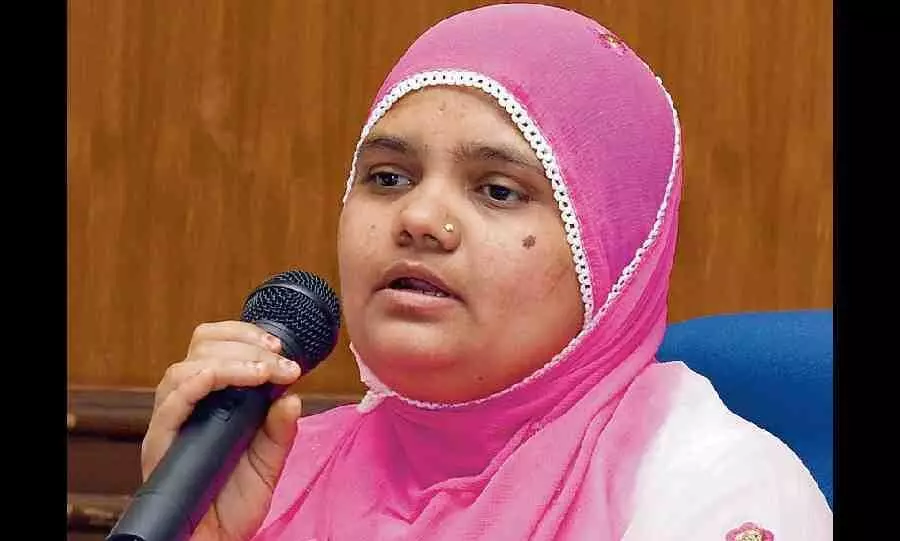
Bilkis Bano case: SC to deliver verdict on pleas against remission granted to convicts on Monday
text_fieldsNew Delhi: The Supreme Court on Monday will deliver its verdict on a batch of petitions filed against the Gujarat government's decision allowing early release of convicts in the case of the gang rape of Bilkis Bano and the murder of her family members committed during the 2002 Gujarat riots.
As per the causelist published on the website of the apex court, a special bench of Justices B.V. Nagarathna and Ujjal Bhuyan will pronounce the judgment on January 8.
In October 2023, the top court reserved its verdict after hearing all the parties on the question of the validity of the Gujarat government's action of releasing 11 convicts under the state's remission policy on August 15, 2022.
The Gujarat government had released the 11 convicts in the Bilkis Bano case, who were sentenced to life imprisonment, on August 15, 2022. All the 11 life-term convicts in the case were released as per the remission policy prevalent in Gujarat at the time of their conviction in 2008.
During the hearing, the Centre, Gujarat government, and convicts have opposed the PILs filed by CPI-M leader Subhashini Ali, Trinamool Congress leader Mahua Moitra, the National Federation of Indian Women, Asma Shafique Shaikh and others against the remission orders, saying that once victim herself has approached the court, others may not be allowed to intervene in a criminal matter.
 Also Read: CM announces handing over of Mizoram airport to AAI or Adani Group
Also Read: CM announces handing over of Mizoram airport to AAI or Adani Group
Also, the convicts had contended that remission orders granting them early release have the essence of judicial order and cannot be challenged by way of filing a writ petition under Article 32 of the Constitution.
On the other hand, senior advocate Indira Jaising, appearing for a PIL litigant, had contended that the remission orders are 'bad in law' and crime committed against Bano during the 2002 riots was a "crime against humanity" perpetrated on the basis of religion.
Jaising had said that the nation's conscience will be reflected in the verdict of the apex court.
Also, the petitioner side had pointed out before the Supreme Court that the convicts did not pay the fines imposed on them and the non-payment of fine renders remission order illegal.
When the final hearing was underway in the case, the convicts approached the trial court in Mumbai and deposited the fine imposed upon them to "reduce the controversy".
The top court had questioned the deposition of the fine without awaiting the outcome of their applications filed before the top court. It had asked convicts: "You seek permission and then you deposit without getting permission?"
The Supreme Court had in October last year, directed the Centre and the Gujarat government to submit the original records related to the remission granted to 11 convicts.
During the post-Godhra riots in March 2002, Bano, 21 years old and five months pregnant at the time, was gang-raped and left to die with 14 members of her family, including her three-year-old daughter.
























